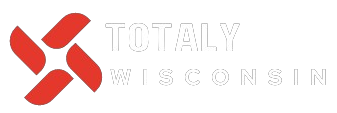Few people have been as deeply involved in natural resources public policy as Katie McKalip of Missoula, Mont. For the past 16 years she has worked for Theodore Roosevelt Conservation Partnership (2007-2015), and since 2015 for Backcountry Hunters and Anglers.
McKalip became involved in conservation in 2000 as part of an internship with the American Outdoor Writers Association. She joined OWAA in 2002 and until 2007 published the national writers’ group’s monthly magazine. He is currently the president of OWAA.
Now, as the BHA’s modern vice president of external affairs and communications, among other things, she reports to local, state and national media on evolving natural resources issues, including a federal court’s support for Wyoming’s Corner Pass, a congressional budget bill that included funding for public lands management and chronic wasting disease management, as well as the Biden administration’s recent 20-year mineral withdrawal in the Boundary Waters Canoe Area Wilderness watershed.
To keep up with ever-changing natural resources policy, McKalip must wade through piles of bureaucracy to keep track of policy changes.
McKalip camps, fishes and hunts with her husband and children.
Outdoor News: How does a girl who grew up in Washington, D.C. end up in Missoula working on natural resources policy issues?
McKalipa: My parents are from Pennsylvania, but I grew up there
in the Washington area in a military family. Probably there
I started thinking about working on national policy concepts. My dad
Diehl, served in the US Army. He served 30 years, he did some things
he toured Vietnam with a tank battalion and retired as a colonel. He
he continued working in the army as a civilian in the Department of
Defense. He studied at Penn State and was the editor of Penn.
State’s Daily Collegian. My mother, Karole, worked in public education at ul
George Mason in Virginia.
Growing up in a military family, we had a robust focus on public service. This
was very much part of (her parents’) expectations. My brothers and me
regularly asked what you are going to do to make the world:
a better place? Joining the military was not expected, but part of it
it was probably this expectation that led me to conservation.
So first TRCP and now BHA allowed me to do this. BHA is the perfect place
for me and a great home for my values. I act on behalf of society
resources and I have the opportunity to go hunting,
fishing, hiking, swimming, camping. I can enjoy being outdoors together
sources of information and this personally appeals to me.
What helped me find my path and career was my upbringing.
Outdoor News: How did you develop an interest in hunting, fishing and other outdoor activities while living in Washington and later attending
Williamsburg, Virginia, for undergraduate work at the College of William and Mary?
McKalipa: My dad hunted. As a child, he ran a trap in northwestern Pennsylvania. But
if you are in the military, you are often assigned to a modern position
several years, so it can be complex to keep up with hunting and fishing trips.
My husband Steve is from a tiny town in northwestern Montana called Libby. He comes from a classic Montana outdoor family.
Opening day of the gigantic game shooting season was more of an experience for him and his brothers
Christmas. His dad was a high school teacher and also a football and soccer teacher
wrestling coach. I only started developing my skills after I met Steve
own traditions – annual trips to the camp with deer and elks, highlands
hunting. This was my real starting point for hunting and we now incorporate it
our children, Ruby (12) and Charlie (10).
Outdoor News: You have been affiliated with two of the nation’s largest conservation groups
Today. What do you see from the inside that makes you committed to your work?
McKalipa: TRCP and BHA – I can’t say enough good things about both organizations. AND
both occurred when they were still relatively teenage. It was a challenge
and it’s a pleasure to support build them from scratch, working with great people
co-workers. The TRCP still has a major influence on the federal charts
environmental policy that is forward-looking and science-based.
The BHA conducts annual surveys of our members and we are pleased to see this happening
our members are politically affiliated. The BHA is equally divided between those who
identify as Republicans, Democrats, and Independents and those who
do not identify with any political party. It’s worth bragging about it
because party politics can divide people and break communities. Was
breaking this trend. That’s another reason why I’m elated to be able to work
in the field of nature conservation: I see how powerful they are
there may be groups consisting of different stakeholders.
Outdoor News: In about 20 years of working in the environmental policy arena, you’ve seen several successes. What are the key changes?
McKalipa: There is also a great legacy of public lands and waters in this country
as a great force of highly invested public land managers
ensuring that the area is properly managed and that there is public access to it
maintained and developed, but this work requires further funding. One area
BHA is very focused on helping you solve budget problems and create
certainly public lands and managers have the resources to do this work.
An example is the federal Land and Water Conservation Fund, which Congress
was established in 1964. It’s a plain concept. A minuscule fraction
royalties paid by the oil and gas industry for the outer continental shelf
drilling goes to conservation work. Since the inception of LWCF, 98% of all
U.S. counties have benefited.
My family doesn’t have much money. My father-in-law was a teacher. We
they don’t have a ranch or a lease. We rely on public opportunities. One of ours
favorite thing in summer is to put the raft on the nearby river and
take a family cruise. Three-quarters of places with fishing access in Montana have access
was created thanks to LWCF funds. Insertion and removal for ours
favorite float on the Clark Fork exists thanks to LWCF funds. This money
affects lives across the country.
Until recently, the LWCF did not have a constant authorization and did not have any dedicated entity
source of financing. Congress had to renew it always and only once
whether it received full financing. There was never enough time. LWCF
there was a problem with the BHA signature. The result of the work we have done with our partners is, among others:
first, in the passage of the Dingell Act in 2019, which included the language
constant reauthorization of the LWCF. Then in 2020 under President Donald
Trump, BHA and our partners have achieved the passage of the Great American
Outdoors Act, which provided full and dedicated funding for the LWCF at
$900 million per year. To say it was a major victory is an understatement.
Another area where BHA has made a gigantic impact is in sending a robust message
Congress that we will not tolerate the sale of public lands and waters.
Public land is a valuable asset. They embody who we are
Americans, national identity. In 2017, legal regulations were introduced, including:
member of the House of Representatives Jason Chaffetz, R-Utah, that
would sell 3.3 million acres of public lands and waters. BHA succeeded
a point of contention and then the larger outdoor community created
a social media storm that attracted the attention of mainstream media.
Just weeks after introducing the bill, Chaffetz announced
publicly announced that he was withdrawing the bill. It was a great victory
all of us who care about public lands and waters.
Outdoor News: What can the average license buyer do to play a positive role in the local community?
state and nature conservation policy that really works?
McKalipa: Be part of the process and make sure your voice is heard. Only one person, yeah
one person, you can hear. This is our political process.
We, the people, have a responsibility to take action for places and
issues worth taking advantage of. See what happens when we speak with one voice.
We must continue to fight for vital places like the Boundary Waters in
Minnesota. In our work, we continue to strive to uphold our American heritage
public lands and waters.
You can support by simply joining a conservation group that is vital to you
– Ducks Unlimited, Delta Waterfowl, Trout Unlimited, Rocky Mountain
Ełk Foundation, i.e. BHA. We work strenuous to defend public lands and
water policy and we have fun doing it.
McKalip will be a speaker at the Public Lands Pavilion this weekend
Pheasant Festival in Minneapolis. For more information, visit pheasantfest.org. For
more about BHA, visit www.backcountryhunters.org


